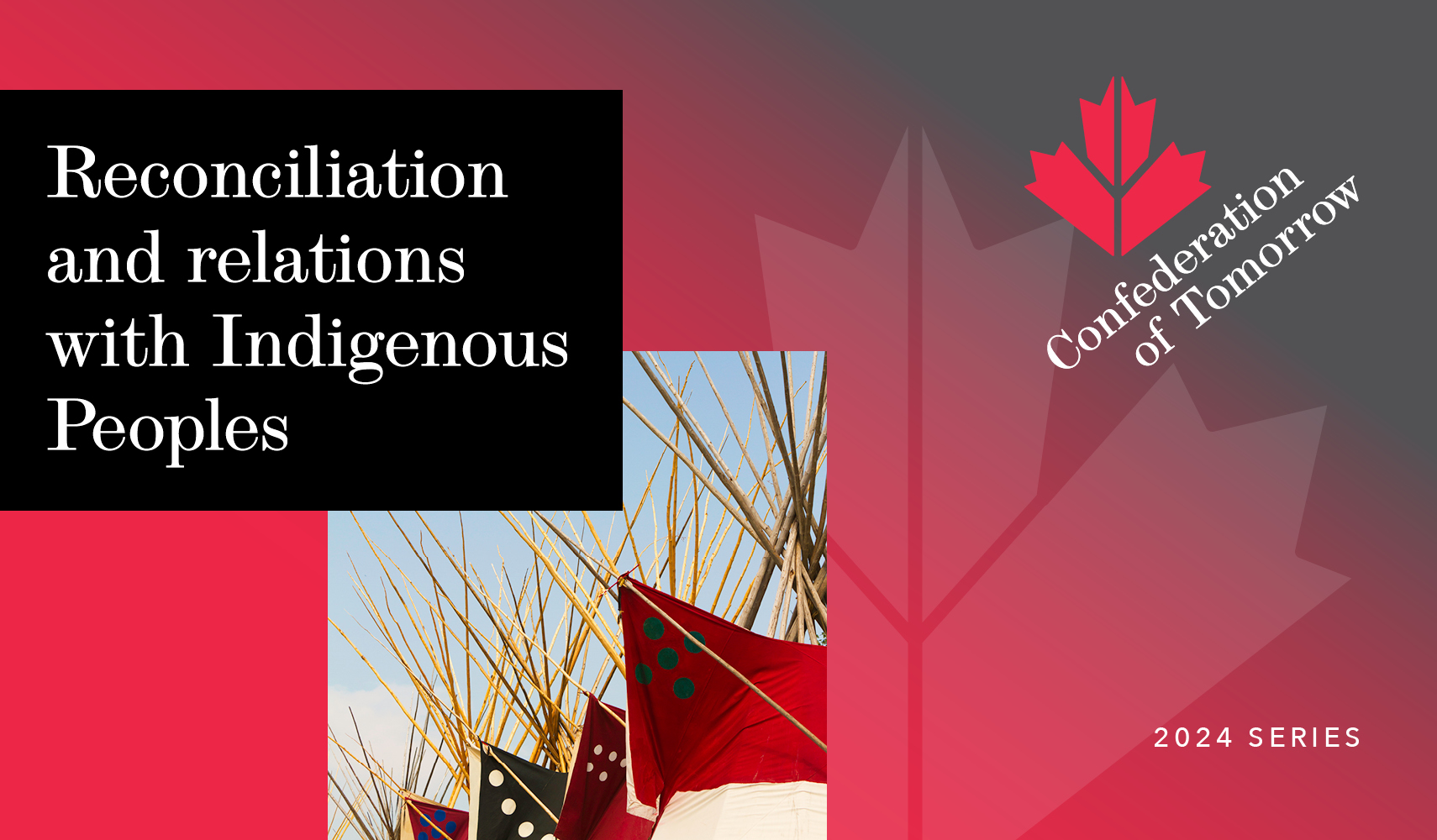Reconciliation and Relations with Indigenous Peoples (2024)

Reconciliation and Relations with Indigenous Peoples (2024)
How do Canadians today see relations between Indigenous and non-Indigenous people and how the process of reconciliation unfolding? Confederation of Tomorrow surveys have been addressing this topic since 2019, and the 2024 survey provides a fresh update on public attitudes from both Indigenous and non-Indigenous perspectives, and how they have evolved over time.
This latest research reveals that over the past year there has been a small but measurable improvement in Canadians’ perspective on relations between Indigenous and non-Indigenous people and reconciliation, building on a similar shift over the previous year. An increasing proportion of Canadians describe relations between the two groups as good, which reflects the most positive assessment since 2020 when this question was first asked. Most Canadians continue to be optimistic about the future of reconciliation, in terms of seeing meaningful progress in their lifetimes. On these questions, Indigenous Peoples are notably more positive and optimistic than non-Indigenous Canadians, and this gap has widened since 2023.
Key findings
- Canadians’ view of current relations between Indigenous and non-Indigenous people has improved for the second consecutive year, especially among Indigenous Peoples, who are now significantly more positive about relations than are non-Indigenous Canadians.
- Canadians are more likely to say that governments have not gone far enough to advance reconciliation than they are to say that governments have gone too far, although the gap between the two views has narrowed over the past two years.
- While Indigenous Peoples have become more positive in their views on current relations, they remain much more likely than non-Indigenous people to say that governments have not gone far enough to advance reconciliation.
- Most continue to believe that individual Canadians have a role to play in advancing reconciliation between Indigenous and non-Indigenous people. Indigenous Peoples are more likely than non-Indigenous Canadians to feel strongly that individuals have a role, but very few in either group expresses the opposite view (that individual Canadians do not have a role in reconciliation).
- Indigenous Peoples and non-Indigenous Canadians alike consider each of eight barriers to be moderate, if not major, obstacles to reconciliation. Inadequate infrastructure in remote communities and socio-economic inequalities top the list, but almost as many apply this assessment to the other barriers, including lack of political leadership willing to implement real change, inadequate Indigenous control over their land and resources, and different worldviews or values.
- A clear majority of Canadians continues to feel optimistic that meaningful progress toward reconciliation will happen in their lifetime. Such optimism is more widely expressed by Indigenous Peoples, and this sentiment has strengthened over the past year.
- Non-Indigenous Canadians’ perspectives about relations between Indigenous and non-Indigenous people and reconciliation are related to the extent of their personal contact with Indigenous Peoples. The small group of non-Indigenous people who say they have many Indigenous friends have a more positive view of the current state of relations between the two groups, feel more strongly that they have a personal role to play in advancing reconciliation, and are more optimistic about the prospects for reconciliation over the coming years.
The Confederation of Tomorrow surveys give voice to Canadians about the major issues shaping the future of the federation and their political communities. They are conducted annually by an association of the country’s leading public policy and socioeconomic research organizations:the Environics Institute for Survey Research, the Centre of Excellence on the Canadian Federation, the Canada West Foundation, the Centre D’Analyse Politique – Constitution et Fédéralisme, the Brian Mulroney Institute of Government and the First Nations Financial Management Board.
The 2024 study consists of a survey of 6,036 adults, conducted between January 13 and April 13, 2024 (82% of the responses were collected between January 17 and February 1); 94% of the responses were collected online. The remaining responses were collected by telephone from respondents living in the North or on First Nations reserves.
For more information, contact Dr. Keith Neuman or the Environics Institute for Survey Research.

This project benefits from the financial support of the Research Support Program of the Secrétariat du Québec aux relations canadiennes (SQRC) / Ce projet bénéficie de l’appui financier du Programme d’appui à la recherche du Secrétariat du Québec aux relations canadiennes (SQRC).

Like what you're reading? With our bi-monthly e-newsletter, you can receive even more with the latest details on current projects, news, and events at the institute.
Subscribe